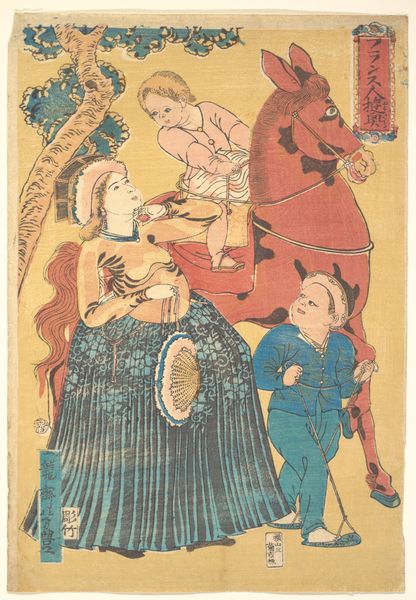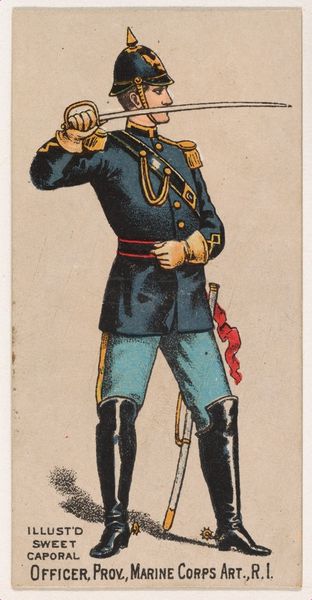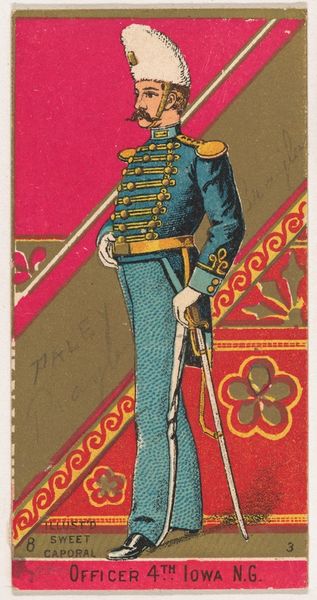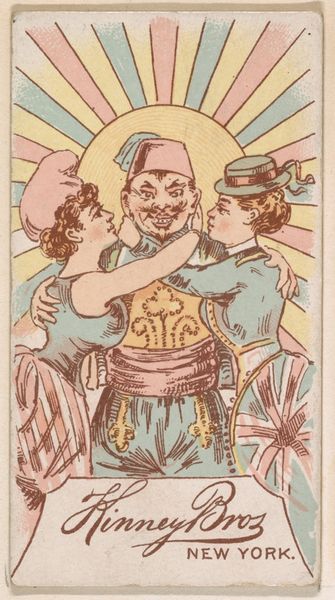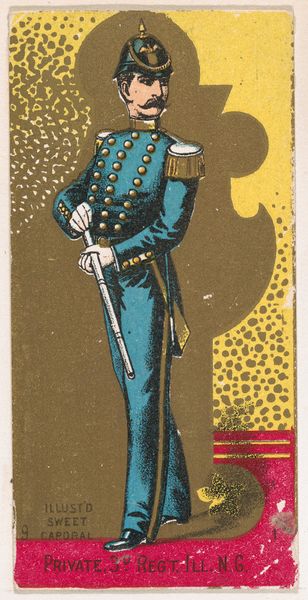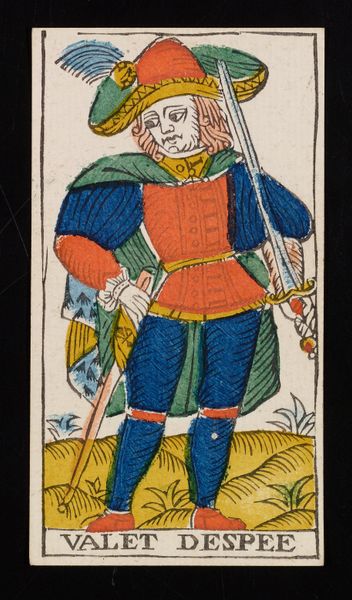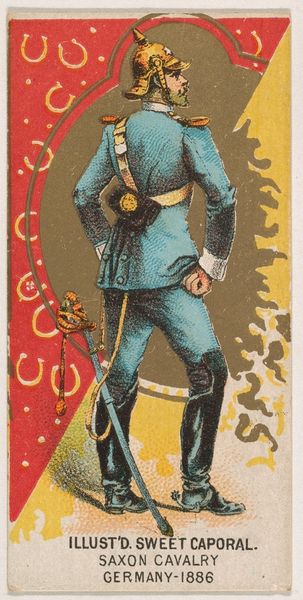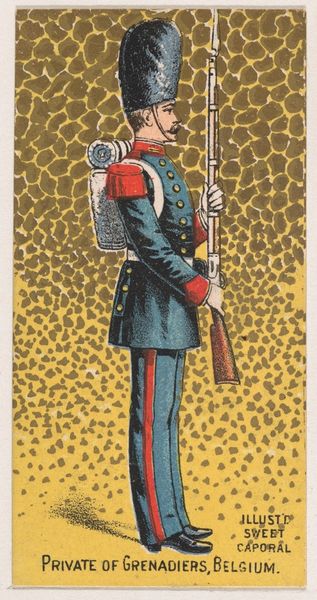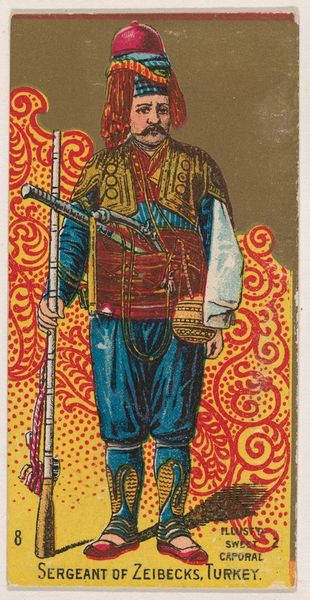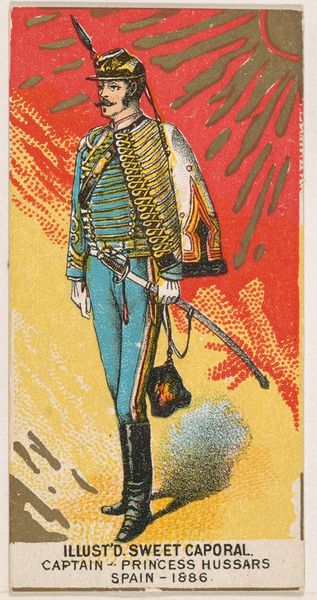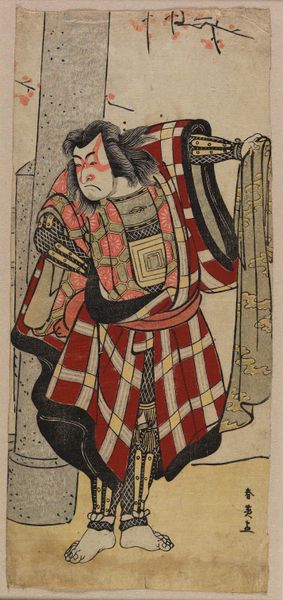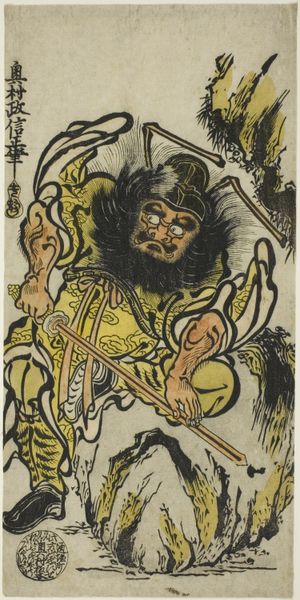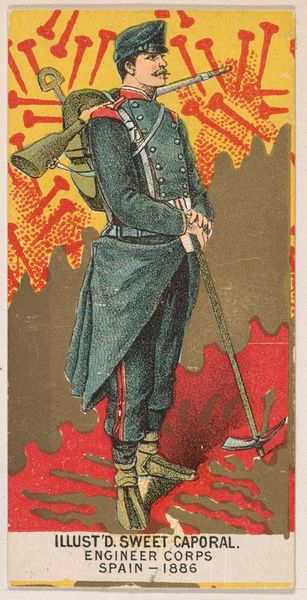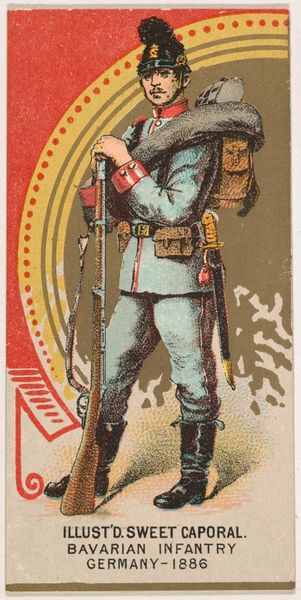
drawing, print
#
drawing
#
art-nouveau
# print
#
caricature
#
caricature
#
german-expressionism
#
folk-art
Dimensions: Sheet: 5 1/2 × 3 1/2 in. (13.9 × 8.9 cm)
Copyright: Public Domain
Editor: Here we have Moriz Jung's "Consecration of the Colors," made in 1911. It's a print, quite small actually, depicting what appears to be military figures. There's something quite satirical about it, especially with the exaggerated features. What strikes you about this work? Curator: Well, I immediately think of the context: this print emerges from the Viennese Secession, a movement known for its craftsmanship. But look closer. Is this really "high art"? The material itself—a print, a multiple—already disrupts traditional notions of artistic value tied to uniqueness. Editor: How so? Curator: Think about production. Prints democratize images. This wasn't a singular masterpiece created for a wealthy patron; it could be reproduced and disseminated widely, reaching a broader audience. The materials themselves—paper, ink, woodblocks if it’s a woodcut—speak to a different kind of labor, more aligned with craft and industry. Editor: So you're saying the medium is the message, almost? Curator: Precisely! Consider the implied consumption as well. These satirical prints were likely consumed by a middle-class audience, perhaps critical of the military pomp and circumstance being depicted. Editor: That makes a lot of sense. I guess I hadn't considered how the materials themselves challenge the idea of "art." Curator: It’s about challenging those hierarchies! Examining the labor, the means of production, and the intended audience gives us a completely different reading of “Consecration of the Colors” beyond its initial satirical appearance. Editor: I’ll definitely look at art with that perspective going forward.
Comments
No comments
Be the first to comment and join the conversation on the ultimate creative platform.
